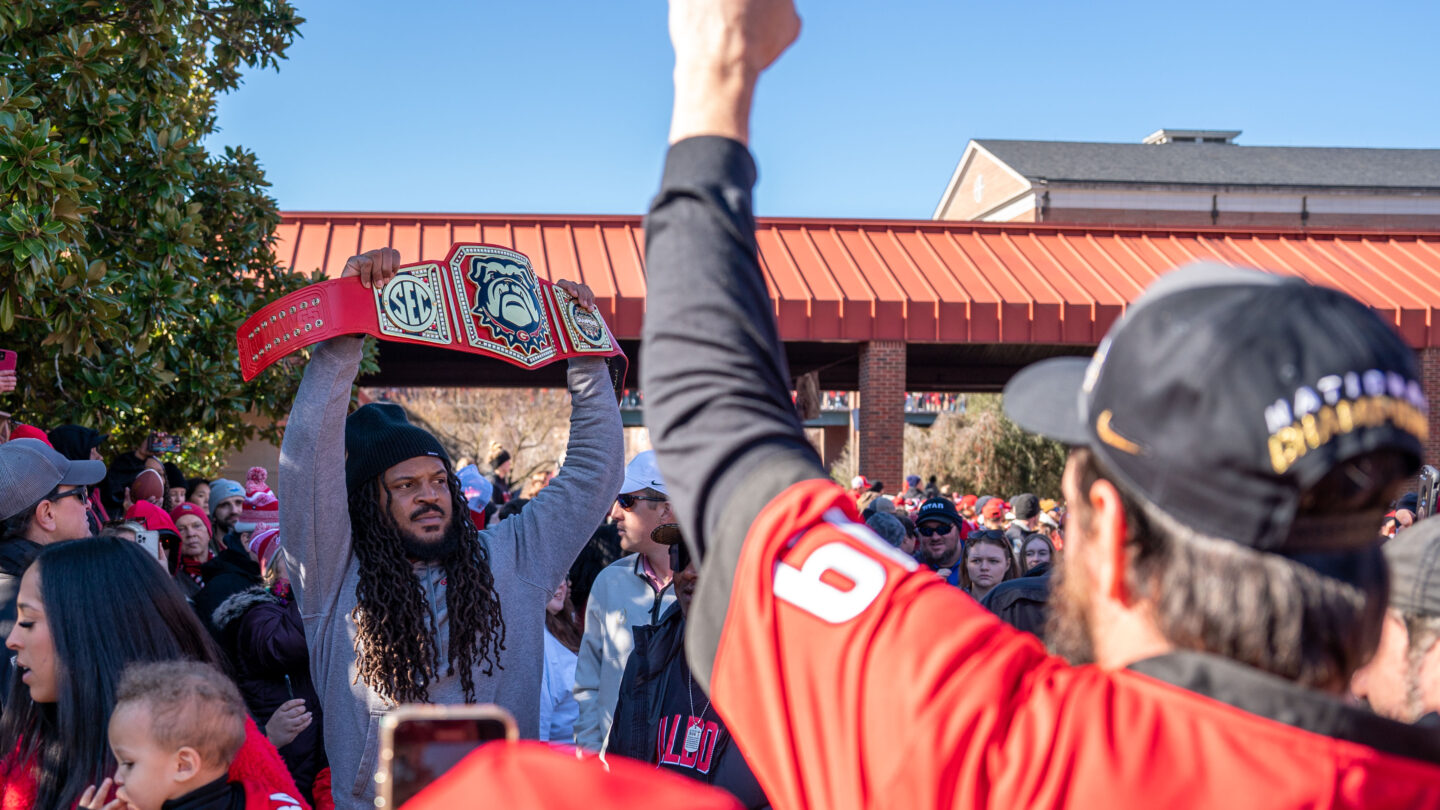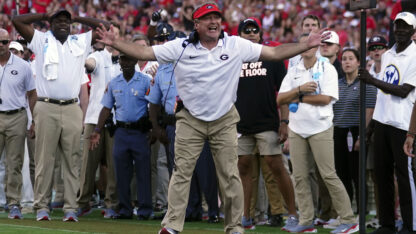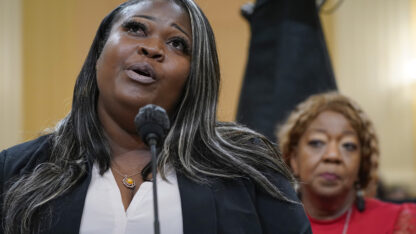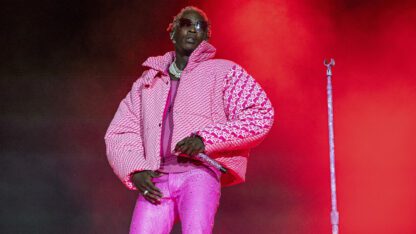A bipartisan group of senators announced Thursday they are working on a college sports bill that would create national regulations for name, image and likeness compensation for players, establish an entity to oversee enforcement of those rules and fund long-term health care for athletes.
“Our goal is to stabilize college athletics and make sure that our athletes are fairly treated,” said Jerry Moran (R-Kan.) during a conference call with reporters.
Moran and Democrats Richard Blumenthal (Conn.) and Cory Booker (N.J.) are proposing the College Athletes Protection & Compensation Act. It is only a discussion draft at this point, far from even being formally introduced, but notable in that both Democrats and Republicans are involved in trying to address issues that have disrupted college sports and the role of the NCAA.
Booker called it a significant step.
“Our goal has been a product that could get 60 votes in the United States Senate. And we believe we are close to reaching that goal,” Moran said.
College sports leaders have been pleading for help from Congress to regulate how athletes can earn money off their fame since before the NCAA lifted its ban on NIL compensation in 2021.
“It’s the first major bipartisan draft … dealing with very profoundly significant issues that attempt to provide some protection to sports heroes whose blood, sweat and sacrifice drive a multibillion dollar industry,” Blumenthal said. “And they need a level-playing field with guarantees of economic opportunities, educational outcomes, essential health care.”
With the NCAA beleaguered by losses in court, including a unanimous rebuke by the Supreme Court two years ago, the association has avoided implementing detailed rules to set a national standard for NIL. Meanwhile, a patchwork of state laws has created a muddled and uneven playing field for schools to try to compete.
Earlier this week, Southeastern Conference Commissioner Greg Sankey again said a federal law is a must for college sports to move forward. The proposal would pre-empt all state NIL laws.
Mississippi coach Lane Kiffin on Thursday called the state of college football, with the convergence of NIL payments and loosened rules allowing players to more easily transfer, a “disaster.”
He said NIL has turned into “pay for play,” which is still impermissible under the NCAA’s rules though seemingly impossible to enforce.
NCAA President Charlie Baker, who has been spending much of his time meeting with lawmakers in Washington since moving into the position earlier this year, has said transparency and standardization with NIL is needed to p rotect athletes and their families.
Baker has said an NCAA working group on NIL is looking for solutions that could be implemented if lawmakers on Capitol Hill don’t act.
The legislation would provide those through the creation of College Athletics Corp., a non-governmental oversight and enforcement agency. The CAC would provide certification for agents looking to represent college athletes and negotiate NIL contracts, and maintain a database of NIL deals. It also would have subpoena power to investigate potential violations, something the NCAA infractions staff does not have.
The new governing body would also establish a medical trust fund athletes could access during and after their careers. The fund would come from contributions by the NCAA and schools and conferences that earn at least $50 million in revenue per year.
Over the last four years, more than a dozen bills targeting NIL and college athletics have been proposed by federal lawmakers, including the College Athlete Bill of Rights by Blumenthal and Booker, who is a former Stanford football player and one of the most outspoken critics of the NCAA.
That bill included revenue sharing for athletes in who play in revenue-producing sports such as major college football and basketball. The new discussion draft does not.
“We are aiming for bipartisan consensus here in what we regard as the most necessary and pressing needs and challenges and we believe this consensus will gain the bipartisan majority that we need to pass this legislation and do it soon,” Blumenthal said.
Moran introduced the Amateur Athletes Protection and Compensation Act in 2021.
None of those proposals went anywhere.
Ramogi Huma, the executive director of the advocacy group College Athletes Players Association, was among those consulted by the lawmakers on this draft.
He said revenue sharing and employee status are sticking points that would stand in the way of a bill passing. He said both issues can be addressed in other ways as long as legislation doesn’t directly ban those items going forward.
“There’s a lot of hope in this particular draft,” said Huma, a former UCLA football player. “I think it’s showing a lot of promise.”










